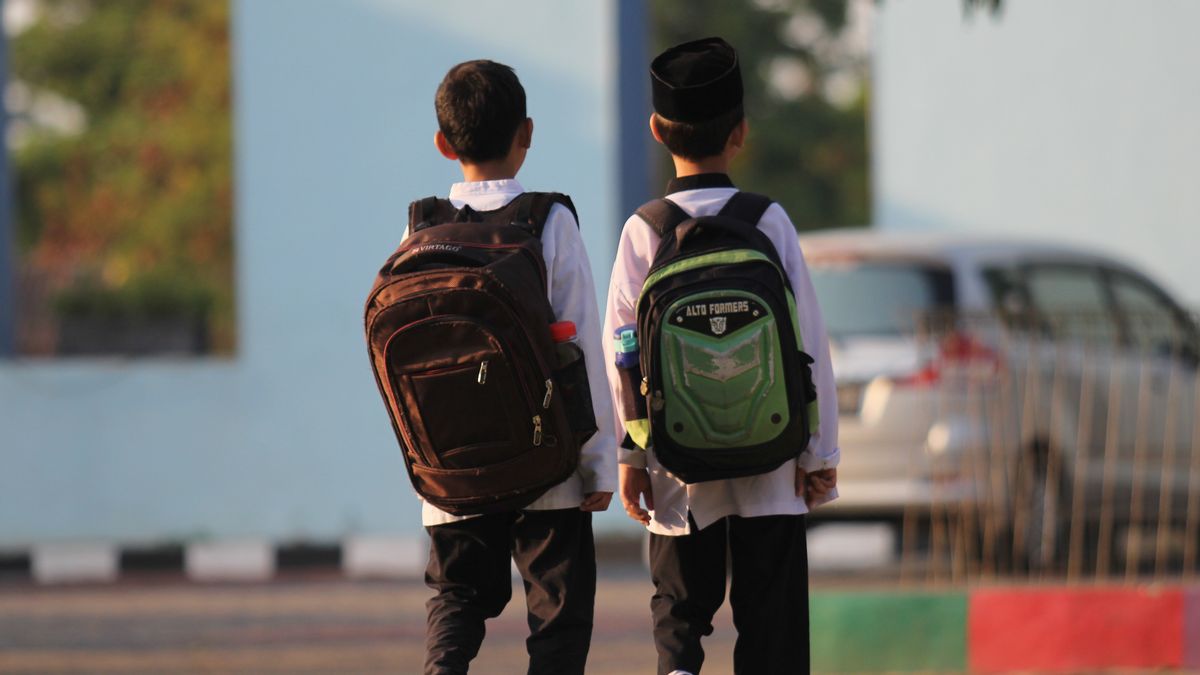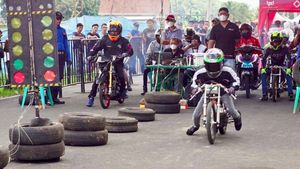JAKARTA - The education sector in Indonesia received a red report card. The results of the PISA (Program for International Student Assessment) report released yesterday (3/12) noted that the reading, math, and science skills of Indonesian students had fallen. Indonesia's position is ranked 6th from the bottom, aka the 74th position out of 79 countries. The decline in the level of literacy of Indonesian students is the cause of the decline in their critical thinking skills. Automatically, PISA's ranking will also decline.
Almost all competency scores of Indonesian students decreased from PISA 2015. The reading competency scores of Indonesian students fell the most, from 397 to 371, followed by mathematics from 386 to 379, and science from 403 to 396. The 2018 PISA survey places the quality of Indonesian education below Singapore, Thailand , Malaysia, and Brunei Darussalam for all competency areas.
PISA is a three-year survey conducted by the Organization for Economic Co-operation and Development (OECD). The survey assessed the ability of 600,000 students aged 15 years who have acquired the key knowledge and skills to participate in society in 79 countries. The 2018 PISA survey focused on reading proficiency, math, science and innovative domains.
The drop in the 2018 PISA score according to the National Coordinator of the Indonesian Education Monitoring Network (JPPI) Ubaid Matraji is due to the low level of literacy of Indonesian students. According to him, our literacy level is still limited to reading, not understanding, analyzing, and critical reasoning.
"Because our literacy level has fallen, this has an impact on PISA's low and uncompetitive performance," he told VOI reporters today (4/12).
Ubaid said that the literacy program must be intensified and must be a priority. This is because so far the literacy program has only been used as a side program. "Therefore, the impact is not optimal," he said.
The importance of literacy programs is not only implemented in schools, but must also be developed in an integrated manner both at home and in the community. What should not be missed is that the literacy program should cover the six dimensions of literacy in its entirety. The delicious dimensions are: literacy, numeracy, science, digital, finance, culture and citizenship.
Minister of Education and Culture Nadiem Makarim did not deny the decline in reading interest of Indonesian students. He also agreed that Indonesia is currently experiencing a literacy crisis.
According to Nadiem, the cause of Indonesia experiencing a literacy crisis is the lack of a reading culture among children. Nadiem argues that the involvement of parents is very important in fulfilling children's literacy from an early age. "The most important thing for literacy is from parents. The impact of parents can be greater than teachers," said Nadiem when releasing PISA 2018 yesterday.
Reading is a basic and important thing to form critical reasoning. One of the difficulties of Indonesian students with reading problems is that it is difficult to understand long text reading. This is as said by the Head of the Research and Development Agency for the Ministry of Education and Culture, Totok Suprayitno. According to Totok, Indonesian students are only able to identify routine information from short reading and simple writing.
"When our children are faced with a long reading, it usually feels very heavy," said Totok as quoted by Koran Tempo (4/12).
The solution, to train children's literacy skills is to get used to reading newspapers. "Reading newspapers will help children get used to reading long texts," said Totok.
The English, Chinese, Japanese, Arabic, and French versions are automatically generated by the AI. So there may still be inaccuracies in translating, please always see Indonesian as our main language. (system supported by DigitalSiber.id)











